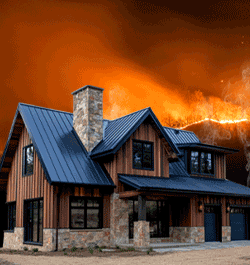3 Considerations for Your Contract Terms in 2022

By ABC Supply.
How to navigate continuing material shortages and supply chain issues to better protect your business.
As contractors continue to get busier and see increased demand, bottlenecks, material price increases and supply chain disruptions, it's more important than ever to update your contracts. With a few easy changes you can add a layer of protection throughout these unprecedented times that can help manage customer expectations and keep you working despite obstacles to job completion. Here are three ways that you can adapt your contract terms to better reflect the construction industry at current.
1 – Take control over the project schedule with excused delays
With chronic shortages of factory workers and truck drivers and with production and shipping slowed down globally due to COVID-19, delays are now the rule rather than the exception.
Contractors should consider including terms in their agreement known as “force majeure” clauses, which protect the contractor if, for reasons beyond the contractor’s control, delays will occur. A typical force majeure clause would read something like this:
Delays or failure of performance caused by “any act, event, or condition that has a material adverse effect on the ability of a party to this Agreement to perform its obligations hereunder if such act, event, or condition is beyond the reasonable control of such party and is not the result of such party’s willful or negligent action or inaction and shall include, without limitation, (i) acts of God, war, public disorders, insurrection, rebellion, floods, hurricanes, earthquakes, lightning, or other natural calamities; (ii) acts or inaction of governmental or regulatory agencies or judicial bodies or changes in laws; (iii) explosions or fires; (iv) strikes or labor disturbances; (v) delays in obtaining goods or services from any subcontractor, materialman, or supplier by reason of any occurrence of any of the foregoing causes; or (v) any unforeseeable act or omission of any third party.”
Solid Waste Auth. of Cent. Ohio v. FirmGreen Fuels of Ohio, L.L.C., 2010 Ohio Misc. LEXIS 20220 (2010).
Other types of clauses can also be inserted to address delays in the contractor’s performance. First, it is a good practice to cover delays caused by the owner. Second, the agreement can excuse delays caused “by any other circumstances beyond the contractor’s control” to provide maximum flexibility in an uncertain environment.
2 – Build in flexible pricing
Prices are rapidly increasing due to demand and inflation. At the same time, delivery dates regularly get pushed back because of factory slowdowns and material shortages. The risk of substantial price hikes is high.
Contractors should consider getting in front of these issues with flexible price terms. One way to do so is to change the method of project delivery from “lump sum,” where there is a fixed price given at the outset, to “cost plus,” which passes through the actual costs to the owner with the contractor earning a fee on the total value of the work. Oftentimes, the “cost plus” contract includes a not-to-exceed price. This amount can be subject to adjustment if, for example, the contractor demonstrates that material costs exceed expectations documented in the contract or if there is a force majeure event.
Otherwise, a term that allows for adjustment of the contract price based on market fluctuations makes the most sense for all involved. The contractor can create goodwill by having a term that says if any material price goes down, then the savings would also be passed on to the customer.
3 – Be open to change orders for substitutions of products
Another way to deal with material shortages and procurement delays is to engage owners in a discussion about substitution of products. In some instances, there may be an equivalent or potentially even more desirable product that can be obtained more quickly. Any such changes should be documented by a written change order, with the appropriate price deduction or increase clearly identified.
Despite busier-than-ever schedules, revisiting and potentially revising contracts is a worthwhile effort. Your attorney can assist you with this process, and the costs you pay to your attorney will very likely be far less than the risk of not updating your agreement.
Learn more about ABC Supply in their RoofersCoffeeShop® Directory or visit www.abcsupply.com.
Original article source: ABC Supply






















Comments
Leave a Reply
Have an account? Login to leave a comment!
Sign In